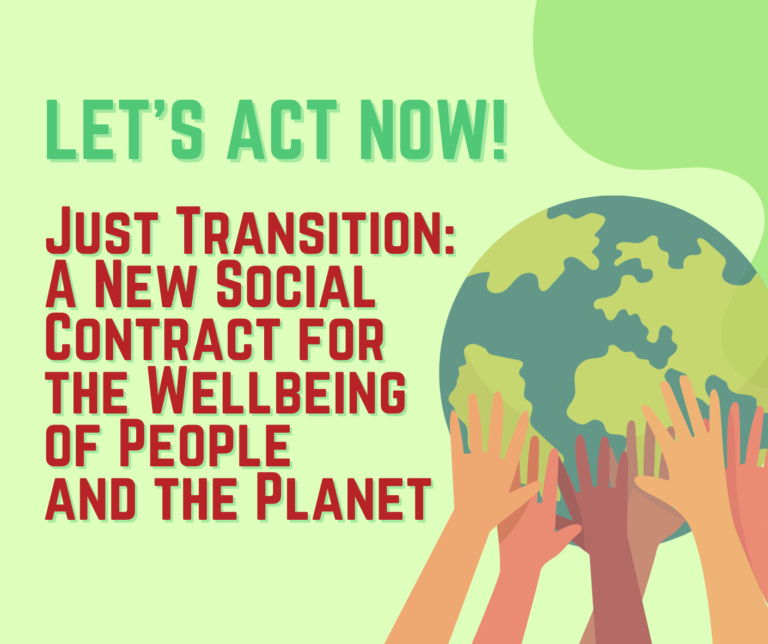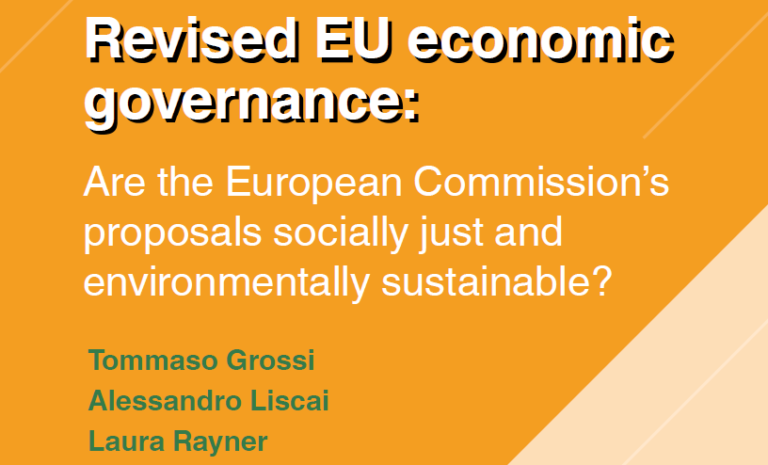The success of an ambitious EU climate target for 2040 depends on a just transition
The European Commission has proposed an ambitious target of a 90% reduction in EU greenhouse gas emissions by 2040. SOLIDAR stresses that a bold vision for climate action should go hand in hand with the thorough planning and implementation of an equally strong and forward-looking policy framework for a just transition that fosters social justice and an economy that fits within planetary boundaries.
The European Commission’s vision
On 6 February 2024, the European Commission published a Communication on Europe’s 2040 climate target, launching a political debate that should eventually be translated into legislative proposals by the next Commission. The Communication highlights that the success of the goal of 90% reduction in EU greenhouse gas emissions by 2040 depends on a number of conditions, namely “the full implementation of the agreed framework for 2030, ensuring the competitiveness of European industry, a stronger focus on a just transition that leaves no one behind, a level playing field with international partners and a strategic dialogue on the post-2030 framework, including with industry and the agricultural sector”.
The text stresses the need for a strengthened just transition policy framework so that “all citizens benefit from the climate transition, now and in the decades to come”. It aims to “bring everyone along” by “launching a dialogue and broad outreach to citizens, businesses, social partners, NGOs, academia and other stakeholders on the right 2040 pathway to climate neutrality by 2050″.
SOLIDAR calls for a coherent and coordinated EU policy framework for a just transition
SOLIDAR welcomes this climate ambition and the role given to just transition as a key to achieving the 90% target by 2040. However, while the Communication makes noise about a just transition, its vision for it remains too general and too little is said about the ‘how’. The few instances where just transition is mentioned focus on the Social Climate Fund, Cohesion Policy and the Just Transition Mechanism – which are undoubtedly important to offset the negative consequences of climate action, but clearly not enough to address the scale of the challenge.
Moreover, the assumption that increased economic competitiveness and growth will automatically benefit everyone and lead to a just transition overlooks the fact that it is instead reinforcing existing inequalities and creating new ones, especially for people in vulnerable situations and the most marginalised.
SOLIDAR believes that a socially just transition must be carefully planned and implemented through a robust EU policy framework that advances climate action, strengthens the European social model and enables a sustainable economy that provides prosperity for all within planetary boundaries. We recommend that such a framework be based on social dialogue, civil dialogue and cooperation with regional and local authorities, underpinned by a holistic and coordinated approach to policy-making, and supported by sufficient financial resources.
SOLIDAR supports the proposed measures for an EU policy framework for a just transition outlined in the European Economic and Social Committee’s Exploratory Opinion “Advancing the EU’s just transition policy framework: what measures are necessary”, adopted in December 2023. At national level, we urge Member States to devise and implement policy packages that address the relevant employment and social aspects linked to the transition in a comprehensive manner, in line with the Council Recommendation on a fair transition to climate neutrality from June 2022.
On 25 January 2024, SOLIDAR joined the other members of the Higher Ambition Coalition led by CAN Europe and sent a letter to EU policymakers calling for an ambitious and science-based 2040 target of at least 90% net emission cuts.
The final decision on the EU’s climate target for 2040 will be in the hands of a new EU Commission and Parliament, formed after the European Parliament elections in June.





